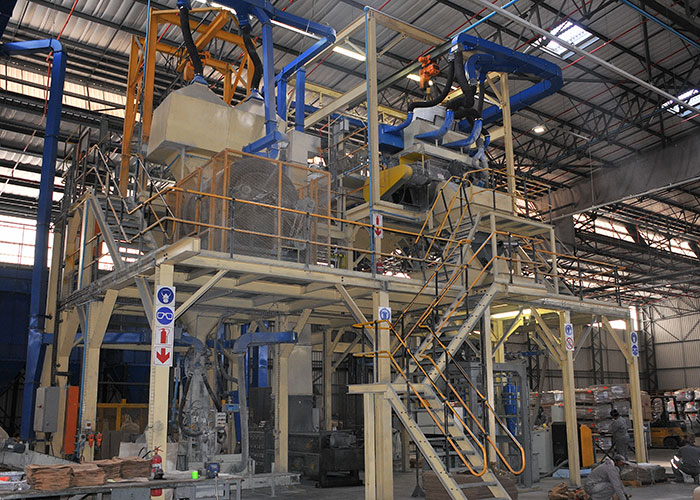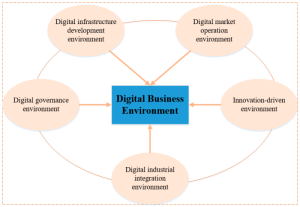
Step into the world of manufacturing innovation with Allied products for manufacturing leading the way to improved efficiency and quality. Get ready for a deep dive into how these products revolutionize various industries!
Let’s explore the diverse range of allied products, from chemicals to construction materials, and uncover their impact on modern manufacturing processes.
Allied products for manufacturing

Manufacturing processes rely heavily on allied products to ensure efficiency and productivity. These products play a crucial role in supporting various stages of production, from raw material handling to final product assembly.
Types of allied products
- Industrial lubricants: Essential for reducing friction and wear in machinery, ensuring smooth operation and prolonging equipment lifespan.
- Tooling and fixtures: Customized equipment used in manufacturing processes to ensure accurate and repeatable production of components.
- Safety equipment: Protective gear and devices that safeguard workers from potential hazards in the manufacturing environment.
- Automation systems: Technologies that automate repetitive tasks, increasing production speed and consistency.
Role of technology in allied products
Technology plays a key role in the development of advanced allied products for manufacturing. Innovations such as IoT sensors, AI algorithms, and 3D printing have revolutionized the industry, leading to more efficient and sustainable production processes.
Efficiency and productivity benefits
- Allied products contribute to improving efficiency by streamlining operations, reducing downtime, and minimizing errors in production.
- By utilizing advanced technologies, manufacturers can achieve higher levels of productivity, meeting market demands more effectively.
- Enhanced safety features in allied products also ensure a secure working environment, protecting both workers and equipment.
Chemicals and Allied Products
Chemicals play a crucial role in various manufacturing processes, contributing to the quality, efficiency, and safety of products. They are used for a wide range of applications, from cleaning and disinfecting to enhancing the properties of materials.
Significance of Chemicals in Manufacturing
Chemicals are essential in manufacturing as they are used in various processes such as production, preservation, and quality control. They help in maintaining the desired properties of raw materials, improving product performance, and ensuring safety standards are met.
Categories of Chemicals Used in Manufacturing
- Raw materials: Chemicals used at the beginning of the manufacturing process to create base materials.
- Processing chemicals: Used during production to transform raw materials into finished products.
- Preservatives: Chemicals used to extend the shelf life of products and prevent spoilage.
- Cleaning agents: Chemicals used to sanitize equipment and maintain hygiene in manufacturing facilities.
Traditional vs. Modern Chemical Products
- Traditional chemical products: Often relied on basic chemical compounds and methods that have been used for years.
- Modern innovations: Incorporate advanced technologies and formulations to enhance performance, reduce environmental impact, and improve safety standards.
Examples of Chemicals in Improving Quality and Safety
- Antimicrobial coatings: Used to prevent the growth of bacteria and fungi on surfaces, improving product safety.
- Flame retardants: Added to materials to reduce the risk of fire hazards, enhancing product safety.
- Corrosion inhibitors: Protect metal surfaces from rust and degradation, improving product quality and durability.
Construction and Maintenance

In the construction and maintenance industry, allied products play a crucial role in ensuring the quality, durability, and sustainability of projects. These products are essential for various construction activities, from building structures to maintaining them over time.
Allied Products in Construction
Allied products commonly used in construction projects include cement, steel, aggregates, bricks, tiles, and waterproofing materials. These products are fundamental for constructing buildings, roads, bridges, and other infrastructure projects.
- Cement: Used as a binding agent in concrete to create strong and durable structures.
- Steel: Provides structural support and reinforcement in buildings and bridges.
- Aggregates: Essential components in concrete mixtures for strength and stability.
- Bricks and Tiles: Used for walls, floors, and roofs in construction projects.
- Waterproofing Materials: Protect structures from water damage and maintain their integrity over time.
Quality Control and Selection
Quality control is vital when selecting allied products for construction to ensure the safety and longevity of structures. Using inferior or substandard products can compromise the integrity of the project and lead to costly repairs in the future. Contractors and builders must adhere to strict quality standards and regulations when choosing allied products for construction projects.
Quality control measures should be implemented at every stage of the construction process to guarantee the reliability and durability of the final structure.
Sustainable Construction Practices
Allied products also play a significant role in promoting sustainable construction practices. By using environmentally friendly materials and energy-efficient products, construction projects can reduce their carbon footprint and contribute to a greener future. Sustainable construction practices aim to minimize waste, conserve resources, and create healthier living environments for occupants.
- Recycled Materials: Using recycled materials in construction reduces the demand for new resources and minimizes waste generation.
- Energy-Efficient Products: Installing energy-efficient products like insulation, lighting, and HVAC systems can lower energy consumption and decrease greenhouse gas emissions.
- Green Building Certifications: Certifications such as LEED (Leadership in Energy and Environmental Design) promote sustainable building practices and recognize projects that meet specific environmental criteria.
Consumer Goods and Services
Consumer goods are products that are purchased for personal use rather than for resale or for use in production. The manufacturing of consumer goods involves a wide range of products, from clothing and electronics to furniture and household items. Allied products play a crucial role in the manufacturing process of consumer goods, as they provide the necessary components, materials, and equipment needed to create high-quality products that meet consumer demands.
Impact of Allied Products on Consumer Goods Manufacturing
Allied products have a significant impact on the manufacturing of consumer goods by ensuring the quality, efficiency, and cost-effectiveness of the production process. For example, specialized machinery and equipment supplied by allied product manufacturers help streamline manufacturing operations, resulting in faster production times and lower manufacturing costs. Additionally, high-quality raw materials and components provided by allied product suppliers contribute to the durability, functionality, and aesthetic appeal of consumer goods.
Importance of Consumer Feedback in Developing Allied Products
Consumer feedback plays a crucial role in the development of allied products for consumer goods. By listening to consumer preferences, manufacturers of allied products can tailor their offerings to meet market demands and improve the overall quality and performance of consumer goods. For example, feedback on the usability, durability, and design of allied products can help manufacturers make necessary improvements and innovations to better serve the needs of consumers.
Examples of Allied Products Enhancing Consumer Goods
- The use of advanced coatings and finishes supplied by allied product manufacturers can enhance the durability and aesthetics of consumer goods such as furniture and electronics.
- Specialized adhesives and fasteners provided by allied product suppliers can improve the assembly process and ensure the longevity of consumer goods.
- Innovative packaging solutions from allied product manufacturers can enhance the presentation and protection of consumer goods, leading to a better customer experience.
Role of Marketing Strategies in Promoting Allied Products for Consumer Goods
Marketing strategies play a vital role in promoting allied products for consumer goods by increasing brand visibility, educating consumers about the benefits of allied products, and establishing partnerships with consumer goods manufacturers. By leveraging effective marketing techniques such as social media campaigns, trade shows, and targeted advertising, allied product manufacturers can attract the attention of consumer goods companies and drive sales of their products.
Overall, marketing strategies help create awareness and demand for allied products in the competitive consumer goods market.
Business Energy
In today’s fast-paced business environment, energy plays a crucial role in driving operations and maintaining productivity. Businesses rely heavily on energy to power machinery, equipment, and facilities, making it essential to optimize energy consumption and reduce operational costs. Allied products in the energy sector play a significant role in helping businesses achieve these goals.
Role of Energy-efficient Allied Products
Energy-efficient allied products are designed to minimize energy consumption while maintaining high performance levels. By investing in these products, businesses can reduce their overall energy usage, leading to cost savings in the long run. These products not only help lower utility bills but also contribute to a more sustainable and environmentally friendly operation.
- LED Lighting: LED lights are energy-efficient alternatives to traditional lighting solutions, consuming significantly less electricity while providing the same level of brightness.
- Energy Management Systems: These systems monitor and control energy usage within a facility, optimizing operations and reducing wastage.
- Insulation Materials: Proper insulation helps maintain a consistent indoor temperature, reducing the need for excessive heating or cooling, thus saving energy.
Trends and Innovations in Sustainable Energy Solutions
The energy sector is constantly evolving, with new trends and innovations emerging to address the growing demand for sustainable energy solutions. Businesses are increasingly focusing on reducing their carbon footprint and implementing energy-efficient practices to meet environmental regulations and consumer expectations.
- Solar Panels: Solar energy is becoming more prevalent as businesses harness the power of the sun to generate electricity and reduce reliance on traditional power sources.
- Smart HVAC Systems: Advanced heating, ventilation, and air conditioning systems are equipped with smart technology to optimize energy usage based on real-time data and user preferences.
- Energy Storage Solutions: Battery storage systems allow businesses to store excess energy generated during off-peak hours for later use, reducing reliance on the grid.
Business Environment
In the realm of business, allied products play a crucial role in shaping the overall environment in which companies operate. These products, ranging from raw materials to machinery and equipment, have a direct impact on the efficiency, effectiveness, and sustainability of business operations.
Impact of Allied Products
- Allied products can significantly influence the quality and performance of the final products or services offered by a business.
- They can also affect the cost structure and profitability of a company, as the sourcing and utilization of these products contribute to overall expenses.
- Moreover, the availability and reliability of allied products can impact the supply chain and operational processes, affecting the overall competitiveness of a business.
Challenges in Sourcing Quality Allied Products
- One of the primary challenges faced by businesses is ensuring the quality and consistency of allied products sourced from various suppliers.
- Issues such as product defects, inconsistent supply, and compliance with industry standards can pose significant challenges for companies.
- Moreover, the complexity of global supply chains and the diverse nature of allied products add to the difficulty of sourcing reliable and high-quality products.
Strategies for Ensuring Sustainability and Reliability
- Establishing strong partnerships with trusted suppliers who adhere to quality standards and certifications can help businesses ensure the sustainability of allied products.
- Implementing robust quality control measures, conducting regular audits, and fostering transparent communication with suppliers are crucial strategies for maintaining product reliability.
- Investing in research and development to innovate and optimize the use of allied products can also enhance sustainability and reliability in the long run.
Role of Regulations and Standards
- Regulations and standards play a vital role in governing the use of allied products in the business environment, ensuring compliance with safety, environmental, and quality requirements.
- Businesses need to stay updated on relevant regulations and standards in their industry to avoid legal issues and reputational damage related to non-compliance.
- Adhering to industry-specific certifications and standards can not only enhance the credibility of a business but also promote a culture of responsibility and ethical practices in the use of allied products.
Final Thoughts
As we wrap up our exploration of Allied products for manufacturing, it’s evident that these products play a crucial role in driving progress and sustainability across industries. From energy efficiency to consumer goods, the influence of allied products is truly remarkable.
Helpful Answers
What is the importance of allied products in manufacturing?
Allied products play a vital role in enhancing efficiency and quality in manufacturing processes by providing essential components and materials.
How do allied products contribute to sustainable construction practices?
Allied products used in construction are selected for their quality and durability, ensuring long-lasting structures that align with sustainable practices.
What role do marketing strategies play in promoting allied products for consumer goods?
Marketing strategies help create awareness and demand for allied products, highlighting their unique features and benefits to consumers.
How do energy-efficient allied products help reduce operational costs for businesses?
Energy-efficient allied products help businesses lower their energy consumption, resulting in cost savings and improved sustainability.
What challenges do businesses face in sourcing quality allied products?
Businesses may encounter challenges such as finding reliable suppliers, ensuring product consistency, and meeting regulatory standards when sourcing allied products.





